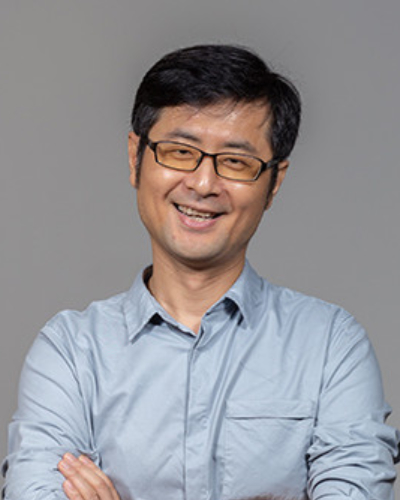Chinese CHI 2023
创智 · 反思 · 展望
Generative · Reflective · Envisioning
November 13~16, 2023, Tsinghua Southeast Asia Center at UID Bali Campus, Kura Kura Bali, Denpasar, Bali, Indonesia
2023年11月13~16日, 清华大学东南亚中心,酷乐酷乐岛, 印度尼西亚巴厘岛

The Eleventh International Symposium of Chinese CHI (Chinese CHI 2023) will be held from November 13–16 in Kurakura Island, Bali, Indonesia. Supported by the International Chinese Association of Computer Human Interaction (ICACHI), Chinese CHI is steered by a group of globally distributed HCI researchers, practitioners, academics, and students concerning about the development of HCI as a thriving field in the global Chinese communities. Chinese CHI serves as a primary forum for connecting the international HCI community to the booming Chinese computing industry.
The theme of Chinese CHI 2023 is Generative, Reflective, and Envisioning. As the first time we can gather globally again at Chinese CHI after the pandemic, We welcome discussions on the value, significance, and social contribution of human-computer interaction in a wide context. We plan to have all accepted papers included in the conference proceedings and published through the ACM Digital Library and EI Compendex.
以“创智·反思·展望”为主题,本届 Chinese CHI 2023会议将于2023年11月13至16日在印度尼西亚巴厘岛酷乐酷乐岛召开。由世界华人华侨人机交互协会(ICACHI)举办的这一学术会议已日益成为连接世界范围内的华人HCI学者、学术界和产业界的重要会议。从2012年起,Chinese CHI已分别在巴黎、多伦多、首尔、硅谷、中国广州、加拿大蒙特利尔、中国厦门及线上成功举办十届。历届会议发表论文均会收录于ACM Digital Library,并提交EI检索。

OPENING KEYNOTE
Shengdong ZhaoFostering Reflective Inquiry: A Dialogue on Value-Driven Research in HCI
"Fostering Reflective Inquiry: A Dialogue on Value-Driven Research in HCI" invites Chinese researchers, both in China and abroad, to engage in a critical dialogue about the direction and depth of HCI research. This keynote is not about providing set answers but rather about initiating a collective exploration into what constitutes truly impactful research in the diverse and global landscape of HCI. The talk aims to bridge cultural and academic perspectives, highlighting how Chinese researchers can leverage their unique insights and experiences to contribute to the field. The speaker, a fellow researcher engaged in this global dialogue, will share personal reflections and encourage an open discussion on how to cultivate research that is deeply innovative, socially relevant, and scientifically sound, regardless of geographical boundaries. Read more Read less
Shengdong Zhao is an Associate Professor in the Department of Computer Science at the National University of Singapore, soon transitioning to a Professor role in the School of Creative Media and the Department of Computer Science at City University of Hong Kong. He established and led the NUS-HCI research lab. Dr. Zhao received his Ph.D. in Computer Science from the University of Toronto and a Master's degree in Information Management & Systems from the University of California, Berkeley. With extensive experience in developing innovative interface tools and applications, such as Draco (which won the best iPad App of the year in 2016), Dr. Zhao is a regular contributor to top-tier HCI conferences and journals like CHI, ToCHI, Ubicomp/IMWUT, CSCW, UIST, IUI, and MobileHCI. He also served as a senior consultant with Huawei Consumer Business Group in 2017. An active member of the HCI community, Dr. Zhao often serves on program committees for major HCI conferences and was the paper chair for ACM SIGCHI in 2019 and 2020. He pioneered the concept of Heads-up Computing in 2017, contributing to several key projects and publications in this area, including a featured article in the September issue of Communications of the ACM. For more information about Dr. Zhao and his work, please visit his website www.shengdongzhao.com. Read more Read less

CLOSING KEYNOTE
Regina BernhauptDigital Twins for HCI Research
Digital twins have become a buzz-word referring to the ability to have digital counterpart of physical parts of our worlds. While starting with digital models of physical objects like machines, today digital twins are real-time connected counterparts of the physical world. And beyond being real time, we see not only digital twins of objects, but digital twins of human hearts, of systems – and systems of systems.
Digital twins will be a key technology when it comes to monitoring and optimizing future services, when it comes to understanding possible alternative scenarios and especially when predicting future events, like when to repair a machine, but also maybe when to repair a heart?
This inspirational keynote will guide you through some examples of digital twins applications that touch everyone of us in our everyday life, our healthcare, the city we are living in. But it will also show how HCI and HCI research methods have to be adapted and re-invented to address the challenges digital twins as a technology bring to our HCI research community.
Read more
Read less
Regina Bernhaupt is a full professor for design for digital-physical interactions at the Eindhoven University of Technology, The Netherlands. She has been working in industry and academia alike, focusing on evaluation and validation methods from both perspectives. Her most recent work is on how to design for digital twins technology, with a focus on how to represent possible (digital twin prediction based) futures to everyone in an inclusive way. Regina Bernhaupt is an active member of the HCI community. She has been CHI chair for 2020 (SIGCHI) and has recently been awarded the silver core award from IFIP (Oct. 2023) for her engagement in IFIP TC 13. Read more Read less

